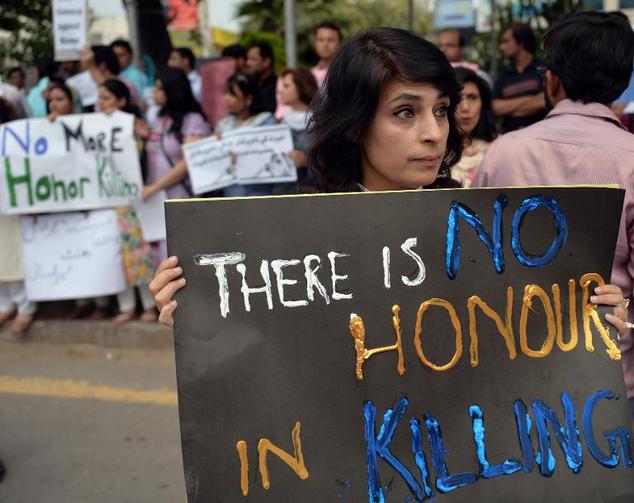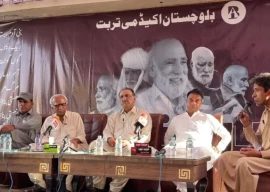
The dead children were two girls and a son. A third daughter, 18, was wounded in Tuesday night's attack in Jhang, police said.
Police said the girl identified the killers as members of her mother's family.
Muhammad Aslam, a policeman at Athara Hazari Police Station in Jhang, said the girl told police the attack was revenge for her mother's remarriage to her beloved cousin 28 years ago.
Four members of Fatima's family had arrived from the capital of Islamabad armed with daggers and axes, the girl told police.
"She told us, 'We all tried to save each other but could not because they were armed'," he said.
Police said it was not clear why the woman's family had waited 28 years to attack her.
So-called honour killings, where a woman is killed for a perceived social transgression, happen several times a day in the country.
Cases are rarely investigated or prosecuted, but even when they are, the law permits a woman's next of kin to forgive her killers. But often, the next of kin are the killers.
In recent years, women have been torn apart by dogs, mutilated, buried alive and dissolved alive in acid for perceived crimes such as looking out a window, singing, wearing trousers, or marrying the man they loved.
In 2013, 869 honour killings were reported in the media, the Human Rights Commission of Pakistan says. The true figure is probably much higher since many cases go unreported.
COMMENTS (4)
Comments are moderated and generally will be posted if they are on-topic and not abusive.
For more information, please see our Comments FAQ





1732427746-0/Copy-of-Untitled-(2)1732427746-0-270x192.webp)











Cultural practices take precedence over religion. That's the reason that this barbaric crime continues unabated not only in Pakistan where it has the backing of powerful and mighty feudal, but also in Turkey and Jordan.
the numbers of women getting killed in Pakistan, despite the population difference, is far less than being killed in Mexico, the point is nothing to do with islam
Although it is claimed that honour killing has nothing to do with Islam, one wonders why the latter has been powerless to change this tribal custom in almost 1300 years.
Purity has a new meaning in Pakistan.